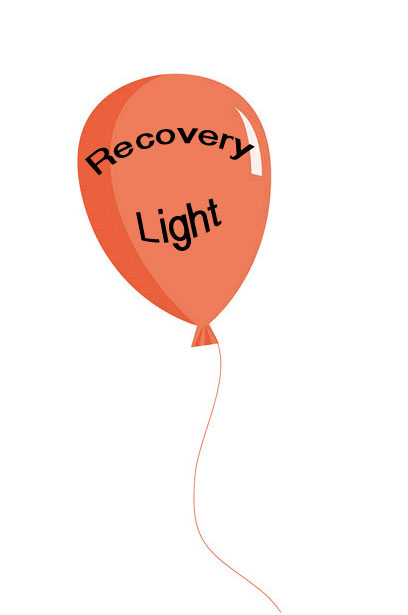
A few things related to recovery have caught my eye recently, things that I think are worth knowing and that ought to shape our practice..
Abstinence goals more reliable
In a study[1] from Swiss researchers involving more than 200 patients going through residential treatment, those who set clear goals for abstinence were much less likely to relapse than those who set conditional goals (like being abstinent for a while then reviewing that decision). About twice as many of those setting abstinent goals (58%) were sober at the 6-month follow-up period as those with ambivalent drinking goals. Demographically the groups were the same though those with conditional goals tended to have more mental health problems.
I thought it striking that of those setting clear goals for abstinence, nearly 60% had achieved that six months later – a very impressive remission rate. This is in keeping with a study done on patients I work with and confirms positive outcomes associated with residential rehabilitation. The study’s bottom line:
In summary, patients with a conditional abstinence drinking goal often do not achieve their drinking goal and start to drink earlier than planned.
Stutz and colleagues, 2022
Recovery capital grows most strongly through participation in recovery groups
Recovery capital describes the resources (internal and external) than can be drawn upon to initiate and maintain recovery. International evidence is growing around the value of recovery residences in supporting individuals to reach their goals. We have at least one such residence in Edinburgh. In a study[2] of US recovery house residents (823) a recovery capital measurement tool was used to capture changes in recovery capital over time.
The study showed that generally recovery capital increased over time, but it didn’t do consistently. Older men who participated in recovery groups did best, with women and younger residents doing more poorly, leading the researchers to recommend that more focus on those groups in terms of housing, employment and family issues may help. While bonding withing the recovery house is thought to be important, the biggest impact seems come from participating in mutual aid groups.
Changes in recovery capital also show that, among the residents who remained, the strongest enabler is amongst those that participate in recovery groups. Living in recovery residences is about active participation in a recovery community and often requires mutual aid engagement, and residents bond as a community and support one another’s recovery”
Härd and colleagues, 2022
Mutual aid membership improves wellbeing
I find myself increasingly frustrated about the lack of academic interest in Scotland around recovery communities. We have large numbers of mutual aid groups and increasing numbers of lived-experience recovery organisations, recovery walks, recovery concerts, and a variety of other activities organised by people who have resolved their problems with substances. The impact on drug and alcohol deaths for this population (saved lives) must be significant, as must the impact on quality of life but there is almost no attention being paid – perhaps because it’s just much easier to study medical interventions. It’s such a blind spot.
So, it was good to read this Polish study[3] involving 70 members of Alcoholics Anonymous. The researcher, Marcin Wnuk, wanted to understand what was going on in the relationship between being involved with AA and how people experience and evaluate different aspects of their lives, particularly regarding mental health, life satisfaction, and happiness (subjective wellbeing). Wnuk found that this was indirectly affected by impact on finding hope and meaning in life (existential wellbeing). They recommend that:
Practitioners, therapists, and counsellors should engage patients with an alcohol addiction diagnosis to participate in AA meetings as an effective way to cope with dependence
Marcin Wnuk, 2022

It’s discouraging to see how little research has been done in the UK on how effectively we connect individuals to mutual aid. Mutual aid participation has a significant impact on outcomes. The fact that there is almost no interest in measuring connection rates to mutual aid and of assessing the impact of such interventions is regrettable. In Scotland, the publication of the evidence behind the Drug Deaths Task Force recommendations this week kind of makes the point.
In an otherwise impressive 223 page document evidencing the things that may make an impact on Scotland’s high drug deaths, I was initially encouraged to see that ‘Recovery’ got its own chapter. Well, I say ‘chapter’, but further exploration revealed that this was in fact a page. Well, I say, ‘page’, but I mean two paragraphs at the top of an otherwise empty page. This will be seen by some as a slight to the Scotland’s communities of recovery and their potential to to make a difference. This is, from my perspective, a wasted opportunity.
As has been pointed out to me recently, there is more awareness south of the border and a toolkit is available to help services connect people into mutual aid in a way that, as the Polish research shows, will improve hope, meaning and wellbeing.
Continue the discussion on Twitter: @DocDavidM
[1] Graser Y, Stutz S, Rösner S, Wopfner A, Moggi F, Soravia LM. Different Goals, Different Needs: The Effects of Telephone- and Text Message-Based Continuing Care for Patients with Different Drinking Goals After Residential Treatment for Alcohol Use Disorder. Alcohol Alcohol. 2022 Jul 31:agac031. doi: 10.1093/alcalc/agac031. Epub ahead of print. PMID: 35909224.
[2] Härd S, Best D, Sondhi A, Lehman J, Riccardi R. The growth of recovery capital in clients of recovery residences in Florida, USA: a quantitative pilot study of changes in REC-CAP profile scores. Subst Abuse Treat Prev Policy. 2022 Aug 6;17(1):58. doi: 10.1186/s13011-022-00488-w. PMID: 35933398; PMCID: PMC9356455.
[3] Wnuk M. The Beneficial Role of Involvement in Alcoholics Anonymous for Existential and Subjective Well-Being of Alcohol-Dependent Individuals? The Model Verification. Int J Environ Res Public Health. 2022 Apr 24;19(9):5173. doi: 10.3390/ijerph19095173. PMID: 35564567; PMCID: PMC9104992.
